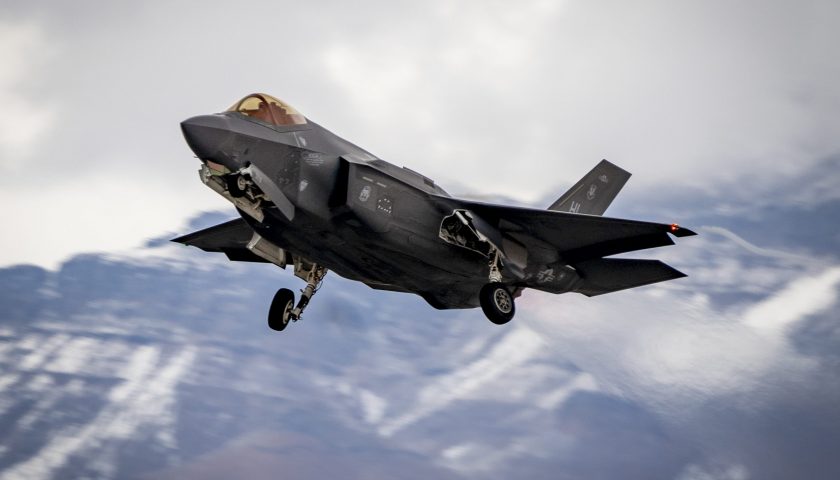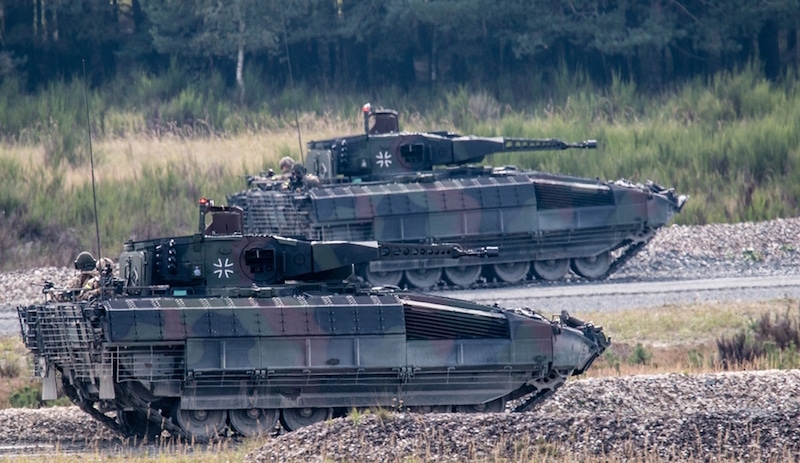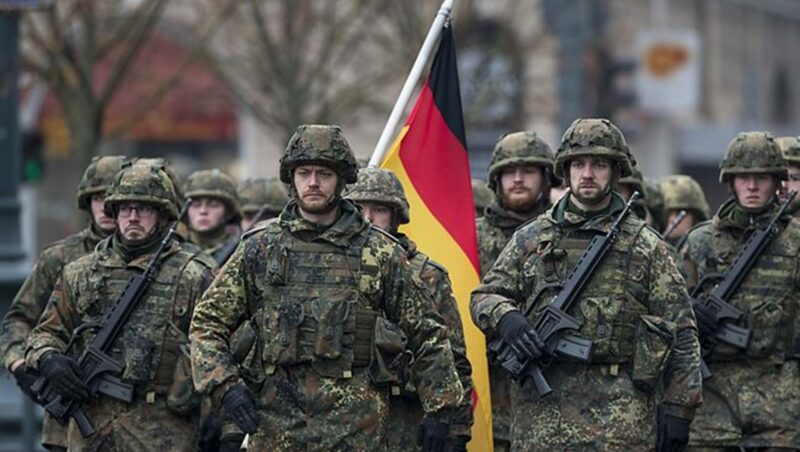The start of the Russian offensive in Ukraine provoked a deep electric shock in German society, as everywhere in Europe : Suddenly, the risk of war became much more pressing on the old continent, and public opinions turned eagerly to certain subjects, in particular on the capacity of their armed forces to protect them against what was then often presented as a potential surge of Russian firepower and tanks. The day after the start of this offensive, the German Chief of Staff, Lieutenant General Alfons Mais, published a post on the LinkedIn social network that further shook a German company fed for 30 years on the benefits of soft-power and the uselessness of military power, announcing that in the current state, the Bundeswehr, the German Army, was not in a position to lead such a fight, handicapped by decades of budgetary and political arbitrations having profoundly deteriorated the capabilities of what was, at the height of the Cold War, the most powerful conventional Western army in Europe, fielding twice as many tanks and 2% more combat than France or Great Britain.
Since then, things have greatly evolved in Berlin. Barely a few days after General Mais's post, the new German Chancellor, Olaf Scholz, presented a very ambitious investment plan to the Bundestag, promising an immediate envelope of €100 billion to remedy the most critical shortcomings of the armed forces. , and making an effort to reach a level of investment exceeding the threshold of 2% of GDP by 2025. The first equipment contracts were quickly announced, with the order for 35 F-35s and a new version of the Typhoon dedicated to the electronic warfare mission to replace the Tornado still carrying out this mission, the order for a new batch of Puma infantry combat vehicles and the modernization of the first 350 units delivered, the acquisition of 2 new Type 212CN attack submarines, 7 new P-8A maritime patrol aircraft, or CH-47F Chinook heavy helicopters and long-range anti-aircraft systems. In addition, €20 billion will be devoted to the recapitalization of stocks of ammunition and spare parts in order to remedy some of the most significant shortcomings of the Bundeswehr, which for several years has posted catastrophic unavailability rates for its major equipment, both in the land, air or naval domain.

This new dynamic initiated barely 4 months across the Rhine, seems to have given wings to Chancellor Scholz who, after having shown extreme caution vis-à-vis Moscow at the start of the conflict, in particular to preserve gas supplies and oil from Russia, essential to the country, is now showing itself to be more offensive, promising on several occasions that Germany will be the pivot in terms of European Defense capabilities within NATO, and that the country will soon have the most powerful conventional armed force on the old continent. However, beyond the political opportunities to make such declarations vis-à-vis an Eastern Europe lacking in reassurance, and the United States anxious not to commit itself too much on the old continent in order to maintain the necessary and sufficient capabilities to face China, one can wonder about the actual materiality of these declarations, and about the possibility, for Berlin, of taking such a central position in Europe on the military level.
The budgetary means of its ambitions
To build this super-Bundeswehr of which Olaf Scholz dreams, the German Chancellor can rely on the greatest strength of the country, its very dynamic, exporting economy, and on a budgetary health envied by many other Europeans. Indeed, by devoting "more than 2%" of its GDP to its defense effort, Germany will be able to allocate more than €75 billion each year to its armies, positioning the country in third position in the world in this area, for little that the other big nations like Russia, India, Saudi Arabia or Japan are not increasing their own investments either. In addition, Berlin has significant budgetary reserves, since the country's public debt does not exceed 70% of GDP today (compared to 113% for France), and the public debt per capita is 40% lower. -Rhine. The outlook is also more favorable today for Germany than it is for France, apart from energy considerations, since the German export economy is taking full advantage of a weak euro.

In other words, Germany not only has the budgetary capacity to increase its defense effort without destabilizing its budgetary balances in the short or medium term, but it also has a much higher debt capacity than other European countries. , who also face the same difficult equation of rearmament at the end of the Covid crisis, and in the midst of an energy and inflationary crisis. The country also has a defense industry capable of supporting this expansion, and which also has significant export capacities in certain areas, such as armored vehicles, submarines, corvettes and missiles. Finally, Berlin will most certainly have the opportunity to increase the budgetary value of its future investments, including in terms of importing American equipment, Washington being by nature inclined to support what can enable it to control the emergence of competitors who are too influential on the global arms market.
A central geographical position and European leadership

The rest of this article is for subscribers only
The Classic subscriptions provide access to
all articles without advertising, starting at € 1,99.
Newsletter subscription
Register for the Meta-Defense Newsletter to receive the
latest fashion articles daily or weekly


[…] […]